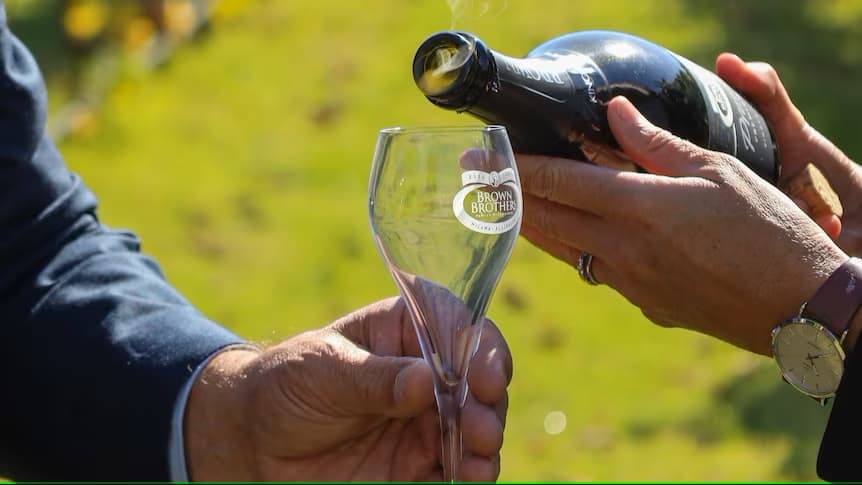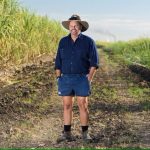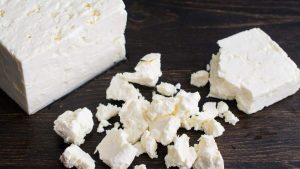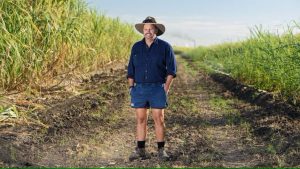
A massive trade deal with the European Union appears all but doomed after “endgame” negotiations between the two sides collapsed before they even began.
Key points:
- A massive trade deal with the European Union looks doomed as negotiations break down
- Trade Minister Don Farrell plans to walk away from the talks in Osaka due to an unsatisfactory offer
- Despite the potential benefits, disagreements persist over market access for Australian products and naming rights
Trade Minister Don Farrell was due to hold talks with his EU counterpart in Osaka on Monday but told negotiators he was walking away from the deal — for the second time in three months — because the offer on the table is still not good enough.
“I came to Osaka with the intention to finalise a trade agreement with the European Union,” he said.
“Unfortunately, we’ve not been able to make progress.
“Negotiations will continue and I’m hopeful that one day we’ll be able to sign a deal that benefits both Australia and our European friends.”
The EU is a massive, high-income trading bloc of 445 million people and is one of the few markets with whom Australia currently has no free trade deal.
As a result, the EU imposes strict quotas and high tariffs on Australian agricultural imports which negotiators have been trying to remove or, at the very least, substantially reduce.
In a statement, EU Ambassador to Australia, Gabriele Visentin, “regretted” the lack of progress made in Osaka, saying “there was optimism that a deal was within reach”.
“Our negotiating teams made good progress over the recent weeks, including in the days leading up to the Osaka meeting,” the Ambassador said.
“The European Commission stands ready to continue negotiations.”
Five years after talks began, Australian farmers say the existing offer is a “dud”, arguing it barely improves market access for sugar, red meat and dairy and would, in fact, impose conditions or European-mandated restrictions on local farming practices.
The other major sticking point has been EU demands for Australia to give up naming rights to hundreds of products – including prosecco, parmesan and feta – to protect so-called “geographical indications”.
Talks have been deadlocked since July when Senator Farrell walked away from Brussels empty-handed, but he was holding out some hope that European negotiators would come to Osaka with an improved offer.
However, Agriculture Minister Murray Watt said the European side had “not budged significantly” since then and expressed frustration about its notoriously protectionist market for agriculture.
“They have not been prepared to put on the table a significantly better offer than what they’ve offered before,” he said.
‘Hard but right’ decision
With European Parliament elections due mid-next year, Senator Watt warned it could be months, if not years before talks would resume.
“I think it will be quite some time before any Australian government or any EU leadership is able to negotiate a deal and that’s a bit of a shame for both Australia and the EU,” he said.
A delegation of farming groups, including the National Farmers’ Federation (NFF) and Meat and Livestock Australia, is in Osaka with the Trade Minister and has backed his decision to stand firm.
“Today’s decision was a hard one, but ultimately it was the right one,” NFF President David Jochinke said.
“It should be clear though to the EU from today’s events that Minister Farrell isn’t willing to throw Aussie farmers under the bus just to get the deal done.”
Shadow Trade Minister Kevin Hogan said it was “disappointing” that negotiations had fallen over but acknowledged “the offer for agriculture, particularly beef, sheep and sugar, was not good enough”.
“The EU offer on geographical indicators would have also been too restrictive, particularly for products like parmesan, feta and prosecco,” he said.
As part of the agreement, the EU has been pushing for greater access to Australia’s vast critical minerals, and for the abolition of the $1 billion Luxury Car Tax, which would benefit Australian consumers.
The two sides agree a trade deal would help both markets diversify away from China, which slapped eye-watering tariffs on Australian imports during the height of the COVID-19 pandemic in what was widely viewed as economic coercion.
The Albanese government has been gradually restoring trade ties with Beijing since coming to power and it is hoped the prime minister’s upcoming trip to China will see a further relaxation of sanctions.






















